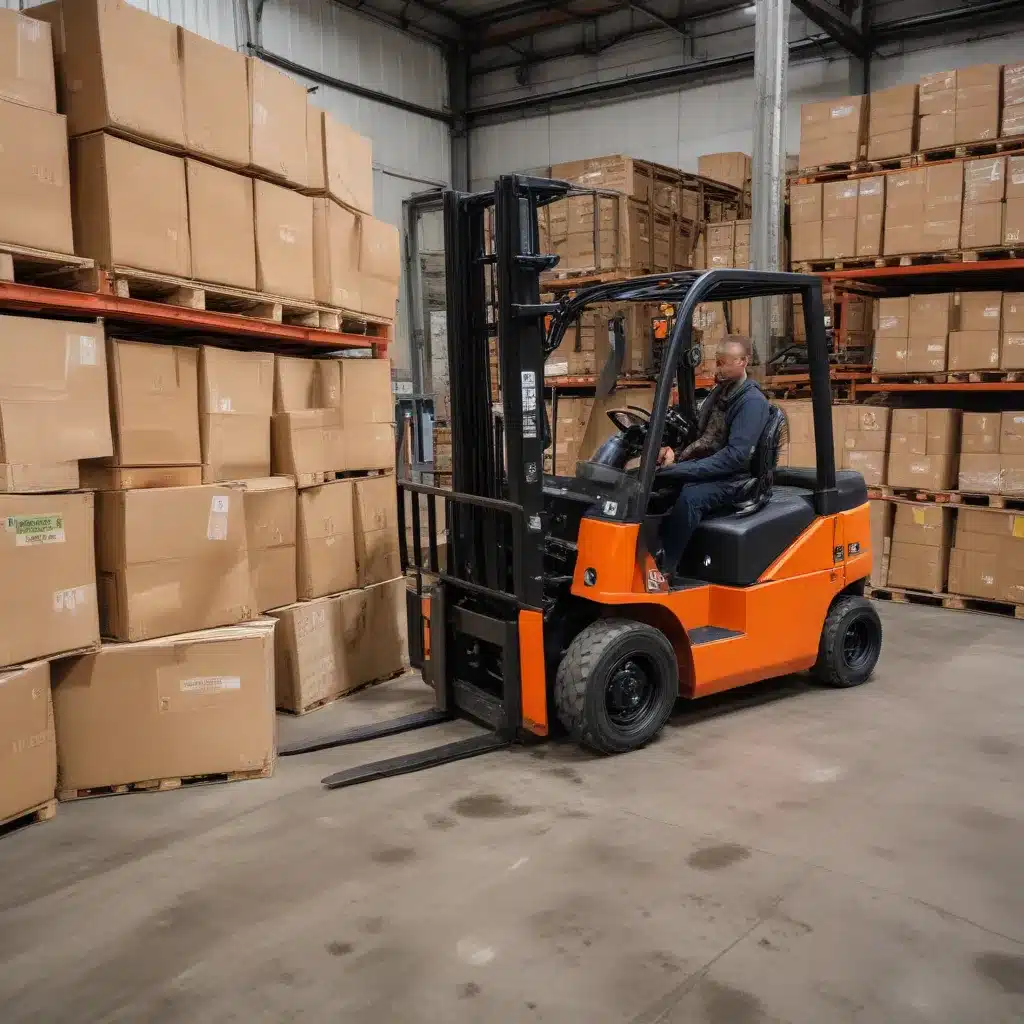
The Shift Towards Sustainable Logistics
In an era where environmental consciousness is at the forefront, the logistics industry finds itself at a crossroads, tasked with minimizing its carbon footprint while maintaining operational efficiency. As the backbone of global commerce, the sector has a pivotal role to play in shaping a more sustainable future. Fortunately, advancements in technology and innovative practices have opened up new avenues for logistics companies to reduce their environmental impact, embracing the principles of the circular economy.
Understanding the Circular Economy
The traditional linear model of production and consumption, where resources are used and discarded, is giving way to a more sustainable approach – the circular economy. This paradigm shift aims to redefine the way we think about materials, products, and waste, promoting the continuous reuse, recycling, and repurposing of resources.
The fundamental principles of the circular economy are:
-
Designing for Longevity: Products are built to last, with a focus on quality, durability, and repairability, extending their usable lifespan.
-
Repair and Reuse: Emphasis is placed on maintaining and repairing products, minimizing the need for new manufacturing and reducing waste.
-
Refurbishment: Products are restored to a functional state through repairs and upgrades, extending their life cycle and reducing the environmental impact.
-
Recycling: When a product ultimately reaches the end of its lifespan, the materials and components are recycled wherever possible, keeping resources in circulation.
-
Resource Efficiency: Businesses strive to maximize the efficiency of their resources, optimizing processes to minimize energy consumption and waste.
Forklift Fleet Sustainability: A Circular Approach
Forklifts play a critical role in the operations of many businesses, enabling the safe and efficient handling of materials. However, the lifecycle of forklifts and their associated equipment can have significant environmental implications. By embracing the principles of the circular economy, logistics companies can reduce their carbon footprint and contribute to a more sustainable future.
Designing for Durability
The foundation of a sustainable forklift fleet lies in the design and manufacturing process. Investing in high-quality, durable forklifts and attachments built to withstand the rigors of the warehouse or distribution center is crucial. Prioritizing longevity and repairability ensures that these essential pieces of equipment can continue to serve their purpose for an extended period, minimizing the need for frequent replacements.
Embracing Repair and Refurbishment
When a forklift or attachment reaches the end of its initial lifespan, the focus should shift to repair and refurbishment. By leveraging specialized expertise and utilizing high-quality components, these assets can be restored to a fully functional state, extending their useful life and reducing the demand for new manufacturing. This not only conserves resources but also contributes to cost savings for the business.
Optimizing Maintenance and Inspection
Proper maintenance and regular inspections are vital to ensuring the longevity and safety of a forklift fleet. Adhering to industry standards and regulations, such as the Lifting Operations and Lifting Equipment Regulations (LOLER), demonstrates a commitment to responsible stewardship of these essential assets. By keeping forklifts and attachments well-maintained, companies can maximize their operational lifespan and avoid premature replacements.
Recycling and Repurposing
Inevitably, there will come a time when a forklift or attachment reaches the end of its usable life. In these instances, it is crucial to explore recycling and repurposing opportunities. Identifying ways to recover and reuse the materials, components, and resources contained within these assets can significantly reduce waste and environmental impact.
Embracing Sustainable Technologies
Advancements in technology have opened up new avenues for forklift fleet sustainability. The adoption of electric and hybrid-powered forklifts, for example, can significantly reduce carbon emissions and energy consumption, aligning with the principles of the circular economy. Furthermore, the implementation of data-driven optimization techniques, such as predictive maintenance and route planning, can enhance efficiency and resource utilization.
Building a Sustainable Forklift Fleet: Practical Strategies
To put the principles of the circular economy into practice, logistics companies can implement the following strategies:
-
Partner with Responsible Suppliers: Engage with forklift manufacturers and attachment providers who prioritize sustainability, quality, and longevity in their product design and manufacturing processes.
-
Prioritize Repair and Refurbishment Services: Establish relationships with specialized service providers who can expertly repair and refurbish forklifts and attachments, extending their useful life.
-
Implement Comprehensive Maintenance Programs: Develop and adhere to rigorous maintenance schedules, ensuring regular inspections and proactive maintenance to maximize the lifespan of the forklift fleet.
-
Explore Recycling and Repurposing Opportunities: Work with recycling partners to identify ways to recover and reuse materials from retired forklifts and attachments, minimizing waste.
-
Invest in Sustainable Technologies: Gradually transition the forklift fleet to more eco-friendly alternatives, such as electric or hybrid-powered models, to reduce carbon emissions and energy consumption.
-
Optimize Fleet Management: Leverage data analytics and fleet management software to enhance operational efficiency, minimize resource waste, and streamline logistics processes.
-
Collaborate with Industry Peers: Engage in knowledge-sharing and best practice exchanges with other logistics companies to drive collective sustainability efforts and foster a circular economy mindset.
Embracing the Future of Sustainable Logistics
By embracing the principles of the circular economy, logistics companies can play a pivotal role in creating a more sustainable future. Through strategic investments in durable, repairable, and recyclable forklift fleets, businesses can not only reduce their environmental impact but also unlock long-term cost savings and operational efficiencies.
At Forklift Reviews, we are committed to guiding logistics professionals through this transformative journey. Our in-depth reviews, safety guidelines, and industry insights empower businesses to make informed decisions that align with the principles of the circular economy, paving the way for a greener, more resilient logistics industry.

